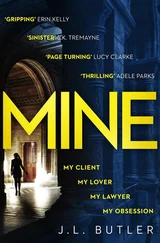I said, “There’s a bunch of you Slims in all this mess, it seems.”
He agreed happily, listing a few. Cheyenne and Silent and San Antonio. Dynamite and Death Valley and Deadeye. He and Birdman Slim had even spent time together with Villa last fall. Birdman was apparently Villa’s one-man aeroplane regiment, having brought his spit-and-baling-wired Wright Model B down to recon and drop homemade bombs for Pancho. The plane got plugged by ground fire over Ojinaga and crashed, but Birdman Slim walked away pretty much unscathed from the wreck and beat it back up to El Paso to lick his wounds. Tallahassee Slim, after some legitimate accomplishments as a cavalry officer in the field, was appointed a major fund-raiser for Villa. He told me this simply, with an ironic shrug, not seeming to feel it was a violation of his insurrecto tradition. But after a stint in this capacity — mostly involving the railways and particularly those trains carrying government bullion or arms but not refusing the personal contributions of private citizens who happened to be on board — Tallahassee Slim had also come north to regroup himself and dally with some white women before heading south again. He and I traded war stories and I got around to complaining about Wilson, who I took to be a lily liver.
“Not exactly,” Tallahassee Slim said, leaning a little across the table and rustling the ammunition strapped to his chest. “At least a lily liver has a straightforward position. This guy isn’t one thing or another. You hear how the man talks? Teddy would put his pistol on the table and call it a pistol. Old Woody sneaks his out and calls it the Bible. He preaches about upholding civilized values, stabilizing governments, giving the Mexicans or the Filipinos or whoever a fine, peaceful, democratic life. Not to mention protecting American interests, which means the oilmen and the railroad men and so forth. And as for the locals, you simply try and persuade the bad old boys who happen to be running a country we’re interested in to retire to the countryside. Problem is, the cojones that got those fellas into power in the first place will never let them walk away. So when it comes down to it, Woody’s going to go to war. Over a chaw of tobacco, too, when it’s time. Mark my words.”
So we drank to Teddy Roosevelt, and I did mark those words. One thing I’d learned filling cable blanks from various tierras caliente for a few years already was to listen to anybody with live ammunition who called himself “Slim.”
And I also lifted my glass that first afternoon in Vera Cruz to Tallahassee Slim. A couple of times. I drank mezcal till it was too hot to stay upright and I decided to follow the example of those who actually lived with the infernal bluster of el Norte and I took a nap.
When I got back to my rooms I found my shirts and my dark trousers folded neatly at the foot of my bed, which led me to notice a quiet babble of female voices somewhere nearby.
I stepped out into the courtyard and Luisa and two other señoritas were over under a banana tree, hugging the shade and talking low. So she saw me looking at her and she rose and stepped into the sunlight, crossing to me but taking her time.
“Señor?” she said as she approached. “Your shirts are clean, yes? Your pants are pressed just right?”
Even in the United States of America, when a girl who works in a shop or a beanery or who does laundry, for a good example, gets a little forward, you take it in a different way than you would with a girl of money and fancy family who you meet somewhere official. I’ve had a few blue-blood girls say some pretty cheeky things in my presence in this day and age. But the shirt-washing Señorita Luisa Morales who stood before me, as beautiful as her face was — with maybe even some granddaddy straight from Castile — she was sure no sangre azul, and she was already plenty forward with me, and she didn’t have to get up and come over and ask about my laundry based on me just looking in her direction. So given all this, it was natural to think she was ready to spend some private time together.
I speak pretty good Spanish, but my vocabulary has some gaps. The few things I know to say in this situation I picked up in cantinas and a burdel or two, and though I figured she was ready for the substance of those words, I was not feeling comfortable with the tone of them. She had a thing about her that I wasn’t understanding. So trying to go around another way, I said, “Why don’t you come on in and we check out the crease in my pants.”
She put on a face I couldn’t decode. Then I said, “I speak softly and carry a big stick.”
Maybe Teddy loses something in translation. Or maybe not. She was gone before I could draw another breath. I remembered those big eyes going narrow just before she vanished, an afterimage like the pop of a newsman’s flash.
Right off, I had a surprisingly strong regret at this. Not just the missed opportunity. The whole breakdown. But I still had too much mezcal in me and the afternoon was too hot, and so I took my siesta.
By the time I saw my señorita again, it was two days later, the German ship had arrived, and so had the U.S. Navy. Bunky and I went down to the docks first thing and the German ship was lying to, just inside the breakwater, with the American fleet gathered half a mile farther out. There didn’t seem to be any serious action out there and it was only a few blocks inland to the Plaza de Armas . So I figured I had time to write a dispatch to Clyde.
I took what I’d decided would be my usual table in the portales and even had a couple of beers. Bunky was off on his own with his Kodak snapping what struck him as interesting, and he swung back to me and gave me a nod now and then. He was a former war correspondent himself, a hell of a good one, but he was taking his shots with film these days instead of words, which was a damn shame. Still, he could take a good one.
So we were well into the morning and Bunky had just checked in and was about to go off again when the local Mexican general, a guy named Maass — born a Mex but with German blood and blond, upright hair — marched a battalion’s worth of government troops into the Plaza. I figured it was getting time for the off-loading of the Ypiranga . I was also the object of some nasty looks from a major on horseback as I finished my beer while the locals were discreetly heading for cover.
Bunky and I beat it back down to the docks, and it had already begun. I counted ten whaleboats coming in, full of American Marines, which I later learned were from the Prairie . No sign behind me, up the boulevard, of Maass sending his troops to meet them. I had my notebook and pencil stub in hand and Bunky took off to find his camera angles.
It all went fast and easy for our boys and for me during the next hour or so. The Marines, who numbered about two hundred, were followed by almost the same number of Bluejackets from the Florida, and they brought the admiral’s stars and stripes with them. We took the Custom House without a shot being fired.
I was still waiting for the Mexicans to come down and put up a fight, but there was no sign of them. Meanwhile, a bunch of locals were gathering in the street to watch. A peon in a serape and sombrero called out “ Viva Mexico ” and threw a rock, and even before the rock clattered to the cobblestoned street twenty yards from a couple of riflemen, he was hightailing it away. The riflemen just gave him a look and the crowd guffawed and it was all turning into a vaudeville skit.
Then a detachment of Marines clad in khaki and wrapped with ammunition started to march through the street along the railway yards. They turned like they were heading for the Plaza. I signaled Bunky and took off after them. They were going down the center of the cobbled street, the zopilotes hop-skipping out of their way and giving them a look over their shoulders like these guys could be lunch. I was hustling hard and gaining on the Marines and they were passing storefronts and balconied houses. Mexicans were strung along the street watching like it was the Fourth of July.
Читать дальше












